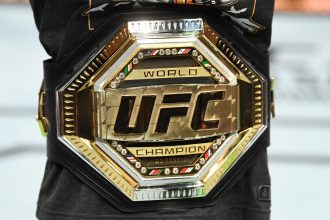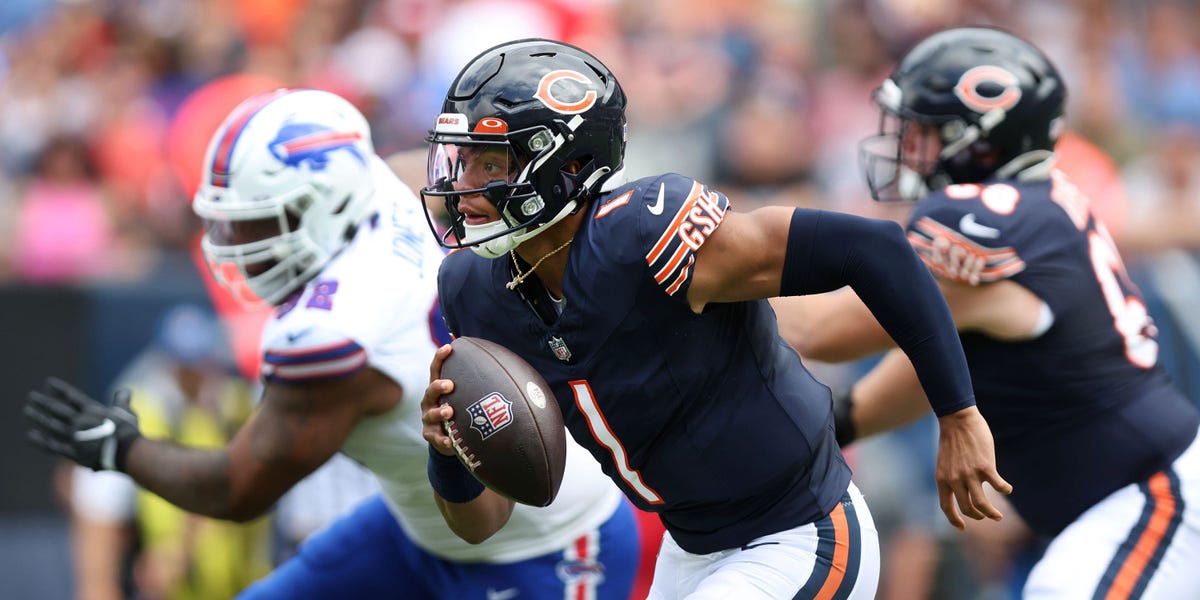- The start of the NFL season is the beginning of a big advertising season.
- Brands have to change their NFL advertising expectations on streamers like YouTube and Amazon.
- Here are 3 ways the streamers are upending ad buying on the NFL.
With the NFL season about to kickoff, it will soon be a boom time for advertisers.
But the NFL’s push into streaming — both with “Thursday Night Football” starting its second exclusive year on Amazon and “NFL Sunday Ticket” premiering on YouTube — has created some distinct challenges for advertisers.
Advertisers used to have an easy path to establish themselves in the NFL. “You used to be able to go to two or three networks and you could own the NFL,” said Kasha Cacy, chief media officer at ad agency Known.
That’s no longer the case, as platforms like YouTube and Amazon influence how some NFL ads are bought and evaluated.
Here are three ways YouTube and Amazon are changing how brands advertise against the NFL.
Advertisers can’t compare streaming ads to TV
For decades, TV ads have been measured using Nielsen’s viewing panel that tracks how many people saw an ad.
But YouTube and Amazon have made it hard for advertisers to compare streaming audiences with TV audiences, and each streaming platform has different ways of measuring their audiences. There also isn’t a way to track people who repeatedly see ads on multiple platforms.
“You kind of need individual approaches with all of them, which is what complicates it,” said Cacy. “It’s a bit of a jigsaw puzzle to put it all together.”
Streaming doesn’t guarantee greater reach
YouTube is pitching its huge reach to advertisers. People who buy a “Sunday Ticket” subscription, which costs between $349 to $449 per season, can watch games either through YouTube’s pay-TV service YouTube TV or from a Premium YouTube channel.
But streaming platforms don’t necessarily have huge sports viewers. Amazon averaged 9.6 million viewers during last year’s 14 “Thursday Night Football” games. The figures were the lowest since the NFL began selling it to media partners in 2014. YouTube TV has over five million subscribers, its chief Neal Mohan said during a MoffettNathanson conference in May.
A YouTube spokesperson said that the company expects more than 50 TV-heavy advertisers to buy ads in “Sunday Ticket” live games, on-demand content, and original programming including YouTube Shorts content.
YouTube is betting on promotions to juice YouTube TV subscribers. YouTube recently promoted “Sunday Ticket” with Verizon to draw in more YouTube TV subscribers. Verizon is offering free Sunday Ticket subscriptions for people who buy a new phone or upgrade their phone and internet plans.
This is key for YouTube to win advertisers looking for scale, said Jonathan Schaaf, global chief investment officer at Stagwell Media Networks.
But Schaaf wants to see if there’s a lot of churn next year, and if YouTube continues offering steep discounts to grow its subscriber base.
These types of promotions have a history of paying off however. Consumers signing up for Verizon service in 2019 could get a free Disney+ subscription for a year. More than two-thirds of those subscribers kept the service after the free trial was over, according to Verizon.
Even if audience numbers disappoint, it doesn’t mean ad sales will plummet. Despite missing some audience estimates for “Thursday Night Football” last year, Amazon still benefited from advertisers moving as much as 20% of their primetime TV budgets out of network TV and cable, Insider previously reported.
Brands now need different strategies depending on where games air
YouTube’s deal with the NFL allows it to sell ads for all “Sunday Ticket” games watched on YouTube in houses. DirecTV, which previously held exclusive rights to “Sunday Ticket,” will sell ads for games watched in places like bars and restaurants through a deal with EverPass Media.
Because of this split, advertisers need to consider running separate campaigns with YouTube and EverPass Media, said Mike McHale, head of activation at Noble People.
Unfortunately for advertisers, games watched in bars and restaurants don’t always have the sound on, he said.
“Advertisers need to be mindful of how their creative works with no sound,” he said.
Despite these hurdles, Schaaf said YouTube’s success with selling “Sunday Ticket” could give YouTube the momentum to chip into big TV ad budgets.
“This is a great vehicle to take that into market and demand more TV ad dollars,” he said.
Read the full article here





